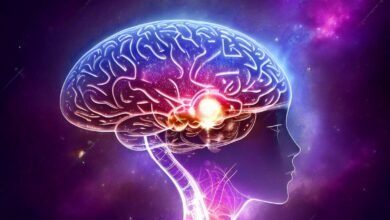Overcoming Addiction: A Guide to Substance Abuse Treatment

Overcoming Addiction: A Guide to Substance Abuse Treatment
Substance abuse is a complex issue that affects millions of people worldwide. Addiction is a chronic disease that affects the brain and can cause long-term changes in a person’s behavior, making it difficult to overcome without professional help. If you or someone you know is struggling with substance abuse, it is important to seek help and support to overcome the addiction.
Detoxification
Detoxification, or detox for short, is the process of removing drugs, alcohol, and other toxins from the body. It is typically the first step in treating substance abuse and addiction. Detoxification can be a challenging and uncomfortable process, as the body goes through withdrawal symptoms as it adjusts to the absence of the substance.
It is important to have professional medical supervision during detox to ensure safety and manage withdrawal symptoms. Detoxification is often followed by further treatment options, such as behavioral therapy and support groups, to aid in the recovery process.
Understanding Addiction
Addiction is a chronic disease that affects the brain and the body. It is characterized by compulsive drug seeking and use, despite the harmful consequences that may result. Addiction can cause long-term changes in the brain, affecting a person’s judgment, decision-making, and behavior Overcoming Addiction: A Guide to Substance Abuse Treatment.
Substance abuse can involve the use of drugs, such as opioids, stimulants, and depressants, as well as alcohol and tobacco. It can also involve the misuse of prescription drugs, such as painkillers and sedatives.
Read More: Watch the full video about Understanding Addiction.
Treatment Options for Substance Abuse
There are several treatment options available for substance abuse, including detoxification, behavioral therapy, medication-assisted treatment, and support groups. Each option is designed to help individuals overcome addiction and achieve long-term recovery.
Detoxification: Detoxification, or detox, is the process of removing drugs and other toxins from the body. Detoxification can be a challenging and uncomfortable process, and it is important to have professional medical supervision during this time to ensure safety and manage withdrawal symptoms.
Behavioral Therapy: Behavioral therapy is a type of counseling that helps individuals identify and change their behaviors related to substance abuse. Behavioral therapy can help individuals develop coping skills, manage stress, and avoid triggers that may lead to relapse.
Medication-Assisted Treatment: Medication-assisted treatment (MAT) is the use of medications, such as methadone, buprenorphine, and naltrexone, to treat substance abuse. MAT can help individuals manage withdrawal symptoms and reduce drug cravings, making it easier to focus on recovery.
Support Groups: Support groups, such as Alcoholics Anonymous (AA) and Narcotics Anonymous (NA), provide a supportive and non-judgmental environment for individuals to share their experiences and struggles with substance abuse. Support groups can provide a sense of community and help individuals develop a strong support system to aid in recovery Overcoming Addiction: A Guide to Substance Abuse Treatment.
Choosing the Right Treatment
Choosing the right treatment for substance abuse depends on several factors, including the type of substance abused, the severity of the addiction, and the individual’s personal preferences and needs. It is important to work with a healthcare professional to determine the best treatment plan for the individual Overcoming Addiction: A Guide to Substance Abuse Treatment.
Overcoming addiction can be a long and challenging process, but with the right support and treatment, it is possible to achieve long-term recovery. If you or someone you know is struggling with substance abuse, seek help and support to begin the journey toward recovery. Remember, you are not alone, and help is available Overcoming Addiction: A Guide to Substance Abuse Treatment.
Conclusion
In conclusion, substance abuse is a chronic disease that affects the brain and can cause long-term changes in a person’s behavior, making it difficult to overcome without professional help. However, there are several treatment options available for substance abuse, including detoxification, behavioral therapy, medication-assisted treatment, and support groups Overcoming Addiction: A Guide to Substance Abuse Treatment.
Choosing the proper treatment for substance abuse depends on several factors, and it is important to work with a healthcare professional to determine the best treatment plan for the individual. With the right support and treatment, overcoming addiction and achieving long-term recovery is possible Overcoming Addiction: A Guide to Substance Abuse Treatment.
If you or someone you know is struggling with substance abuse, seek help and support to begin the journey toward recovery. Remember, you are not alone, and help is available Overcoming Addiction: A Guide to Substance Abuse Treatment.
Frequently Asked Question
- What is substance abuse?
Substance abuse involves the use of drugs, alcohol, or other substances in a way that causes harm to the user’s health, relationships, and daily life.
2. What is detoxification?
Detoxification, or detox for short, is the process of removing drugs, alcohol, and other toxins from the body.
3. What happens during detox?
During detox, the body goes through withdrawal symptoms as it adjusts to the absence of the substance. These symptoms can be physical and psychological and may include nausea, sweating, anxiety, and depression.
4. Is detoxification necessary for treating substance abuse?
Detoxification is often the first step in treating substance abuse, as it helps remove the harmful substances from the body and allows the individual to begin the recovery process.
5. Is detoxification a standalone treatment for substance abuse?
Detoxification is not a standalone treatment for substance abuse, as it only addresses the physical aspect of addiction. It is often followed by further treatment options, such as behavioral therapy and support groups, to aid in the recovery process Overcoming Addiction: A Guide to Substance Abuse Treatment.
6. Can detoxification be done at home?
Detoxification should be done under professional medical supervision to ensure safety and manage withdrawal symptoms. Attempting to detox at home without medical supervision can be dangerous and potentially life-threatening Overcoming Addiction: A Guide to Substance Abuse Treatment.












3 Comments